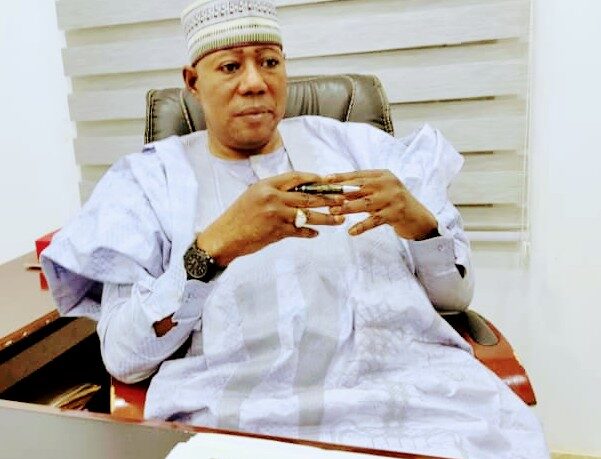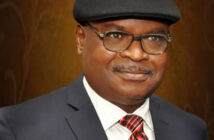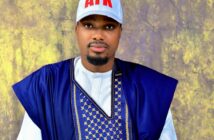A time-tested aphorism says “great men are great by their stories and accomplishments.” It is also true that if you don’t have a track record, you are unfit to be called great.
Since 2015, Nigeria has continued to watch their country being navigated back from the path of self-destruction to recovery. This is not happening in isolation. Rather, it is a result of deliberate choices by President Muhammadu Buhari. The taste of the pudding got better with the coming on board of a ‘Political Mathmatician,’ Abdullahi Adamu, as the chairman of the ruling All Progressives Congress (APC).
I would have been surprised if it was otherwise because Buhari’s entire life has been about service to Nigeria. Right from 1975, when General Murtala Muhammed appointed him military governor of the North East State, from August 1, 1975 to February 3, 1976, to oversee social, economic and political improvements in the state. In February 3, 1976, when the North Eastern State was divided into three states, Bauchi, Gongola and Borno, Buhari then became the first governor of Borno State from February 3, 1976 to March 15, 1976.
Because of his diligence, probity and commitment, then General Olusegun Obasanjo appointed then Colonel Buhari as Federal Commissioner for Petroleum and Natural Resources (now minister). In 1977, when the Nigerian National Petroleum Cooperation was created, Buhari was appointed as its chairman, a position he held until 1978.
During his tenure as the Federal Commissioner for Petroleum and Natural Resources, the government invested in pipelines and petroleum storage infrastructures. The government built about 21 petroleum storage depots all over the country. From Lagos to Maiduguri and from Calabar to Gusau, the administration constructed a pipeline network that connected Bonny terminal and the Port Harcourt refinery to the depots. Also, the administration signed the contract for the construction of a refinery in Kaduna and an oil pipeline that will connect the Escravos oil terminal to Warri Refinery and the proposed Kaduna refinery.
After he left service, Buhari served as the chairman of the Petroleum Trust Fund (PTF), a body created by the government of the late General Sani Abacha and funded from the revenue generated by the increase in price of petroleum products, to pursue developmental projects around the country. A 1998 report in New African praised the PTF under Buhari for its transparency, calling it a rare “success story.”
In appreciation of his leadership pedigree and all inclusive leadership, in 2017 the South East council of traditional rulers honoured President Buhari with the chieftancy titles of the Enyioma I of Ebonyi and the Ochioha I of Igboland. At the time of his investiture, the president had already held a title of Ogbuagu I of Igboland in the Nigerian chieftaincy system. He was later awarded another one, Ikeogu I of Igboland, the following year.
As a retired Major General in the Nigerian Army, Buhari served as the military head of state between December 31, 1983 to August 27, 1985.
Buhari ran for president of Nigeria in 2003, 2007, and 2011. In December 2014, he emerged as the presidential candidate of the APC for the 2015 general election. Buhari won the election, defeating incumbent President Goodluck Ebele Jonathan. This was the first time in the history of Nigeria that an incumbent president lost at a general election.
On his part, Abdullahi Adamu entered politics in 1977 and was elected to the Constituent Assembly, which drafted the constitution for Nigeria’s short-lived Second Republic (1979–1983). He was a pioneer member of the National Party of Nigeria (NPN), the first Secretary-General of the NPN in Plateau State from December 1978, and chairman of the NPN in Plateau from 1982 to 1983 when military rule began again. In 1994, he was appointed to the National Constitutional Conference by the Abacha regime. In March 1995, Adamu was appointed a minister of state for Works and Housing, holding the position until November 1997. When the ban on political activity was lifted in 1997, he joined the United Nigeria Congress Party (UNCP). In 1998, Adamu became a founding member of the Peoples Democratic Party (PDP).
During the 1999 Nasarawa State gubernatorial election, Abdullahi Adamu ran successfully for position of governor on the PDP platform. He was re-elected during the 2003 Nasarawa State gubernatorial election.
As governor of Nasarawa State, in December 2003, Adamu welcomed Queen Elizabeth II of the United Kingdom on a visit to Karu, where she was entertained by cultural troupes. Adamu promised to make Nasarawa famous with the state’s solid mineral natural resources and tourist attractions such as the Farin Ruwa Waterfalls and the flowing Eggon hills. He backed the construction of the Farin Ruwa Falls. Hydro-Electric plant, visiting South Korea in 2004 and later awarding the engineering contract to the South Korean firm, Yooshing Engineering. In September 2005, he launched the School Feeding Programme in Nasarawa, which aims to provide a fortified nutritional supplement to primary school children.
After the end of his two term as governor, Adamu became Secretary, Board of Trustees (BOT) of the PDP. In November 2009, a group of prominent PDP members stated that they would support his candidacy in the 2011 elections for the Nasarawa West senatorial district.
Adamu was the PDP candidate for the Nasarawa West Senatorial seat in the April 2011 elections. In the event, he was elected with 121,414 votes, while his closest rival, retired General Ahmed Abdullahi Aboki of the Congress for Progressives Change (CPC), polled 93,050 votes.
In March 2022, Abdullahi Adamu was appointed national chairman of the All Progressives Congress (APC) party, the ruling and majority party.
Against the backdrop of the foregoing, it is safe to regard President Buhari and Senator Adamu as geniuses, with impeccable track records of public service.
With the two men in the leadership saddle, Nigerians cannot afford to make mistakes as the prepare to choose leaders at levels in 2023. The citizens must disregard attempts by political mafias to rock the boat. In matters of political leadership, President Buhari and Senator Adamu are pathfinders who deserve all the cooperation from the political class.
It was in the bid to provide leadership at all levels that President Buhari did all he could to grant financial autonomy to local government areas, state legislature and judiciary. In doing so, the president also set a national financial intelligence unit to monitor the flow of funds and revenues meant for the local government areas, the state legislature and the judiciary.
Till date, the international community is still understudying Nigeria to understand how the Buhari administration was able to contain the COVID-19 pandemic. The intervention programme of the federal government led to the mass distribution of relief materials and funds to states, though the items were said to have been stock piled in wharehouses where they were forcefully taken by angry youths.
This is the kind of leadership provided by Buhari that Nigerians should yearn for and go to any length to install – a leadership that recognises the importance of the people’s welfare from the ward to the local government levels despite the global challenges occasioned by the pandemic and dwindling fortunes of the oil industry.
The state governors should also be reminded that during their rainy days when most of them could not pay common salaries, President Buhari was there for them, with bailout funds and Paris Refunds. It is on record that no Nigerian leader, living or dead, has ever done these kinds of intervention. As an old saying goes, “one good turn deserves another.”
President Buhari should be supported in who succeeds him in office. It is the ernest desire of any leader to determine who succeeds him in office because that is how legacies are preserved.
For instance, former United States president, Barack Obama, facilitated the emergence of his secretary of state, Hilary Clinton, as Democratic candidate in the 2016 US presidential poll, though she lost to Donald Trump. He repeated the same support for his vice, Joe Biden, and succeeded. This led to the restoration of all his flagship policies like Iran Nuclear deal, Obamacare etc which were abolished by the Trump administration.
In like manner, President Buhari will like to preserve his laudable legacies and the only way he can do that is for him to have a substantial say in choosing his predecessor.
– Ibrahim is director, Communications and Strategic Planning, of the Presidential Support Committee (PSC)




